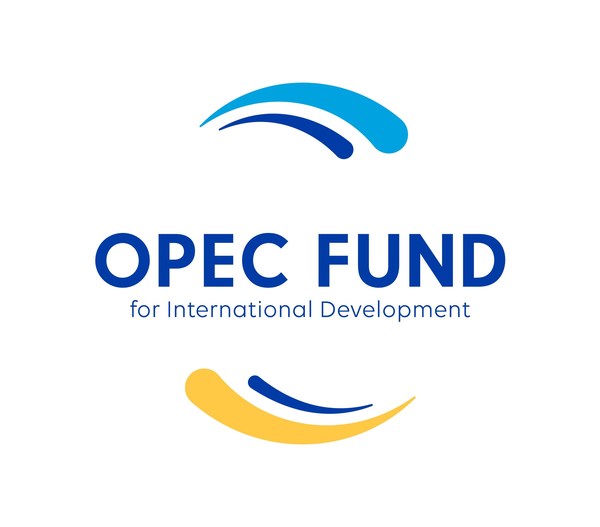OPEC Fund approves over US$500 million in new global development support
ByPublished : Dec. 16, 2022 - 00:10

VIENNA, Dec. 15, 2022 /PRNewswire/ -- Setting a new record, the OPEC Fund for International Development has approved more than US$500 million in new financing at the most recent meeting of its Governing Board and in the final quarter of 2022.
The 15 new projects approved reflect the OPEC Fund's launch of a US$1 billion Food Security Action Plan and the adoption of its first dedicated Climate Action Plan earlier this year. In addition, new engagements will support infrastructure development and investments to improve communities in the Fund's partner countries around the world.
OPEC Fund Director-General Dr. Abdulhamid Alkhalifa said: "In a very challenging year, the OPEC Fund was able to significantly increase its support and strengthen its impact. Our new approvals will provide much-needed financing to address urgent global issues such as food, energy and climate security in line with our strategic priorities. At the same time, we recognize the need to accelerate support for sustainable development to ensure people's livelihoods and well-being worldwide."
The OPEC Fund Governing Board approved the following projects:
Promoting access to energy and renewable energy:
Niger: A US$25 million loan to the Niger Solar Plant Development and Electricity Access Improvement Project will connect 80,000 households to the national electrical grid through the construction and grid integration of a 10 MWp solar photovoltaic plant. The OPEC Fund will also co-finance the construction of electrical transmission lines in the southern region of the country and in the capital city Niamey.
Bangladesh: A US$38 million private sector loan will support the construction of a 584 MW power plant, create more than 1,000 jobs and strengthen the country's energy security.
Uzbekistan: A US$20 million private sector loan will contribute to the financing of a 500 MW wind farm and 160 kilometers of transmission lines, helping the country modernize its energy infrastructure.
Uzbekistan: Another US$20 million private sector loan will help finance a 500 MW wind farm and 128 kilometers of transmission lines.
Tanzania: A US$60 million tranche financing facility to the Benaco-Kyaka Transmission Line Project will support the construction of more than 160 kilometers of transmission lines and a substation to deliver reliable energy services from the national grid to the north-western region of the country.
Food Security:
Benin: A US$14 million supplementary loan will support the ongoing Agricultural Development and Market Access Support Project, which is expected to benefit more than 255,000 people, including smallholder farmers. The project will boost farmers' income and strengthen food security and nutrition in rural areas.
Liberia: A US$10 million loan to the Special Agro-Industrial Processing Zone Project will enhance food security and provide support to small and medium-sized enterprises (SMEs).
Social infrastructure, international trade and MSME support:
Africa: A US$50 million loan to a regional multilateral development bank will bolster infrastructure projects in countries across the continent.
Africa: A US$40 million loan to a private sector institution will support the import and export of agricultural commodities and fertilizer across multiple African countries.
Cote d'Ivoire: A €70 million program-based loan will contribute to the financing of the Economic and Social Reform Support Program. The budget support is intended to promote reforms aimed at providing access to basic social infrastructure for disadvantaged people.
Africa: A €50 million loan to a regional multilateral development bank will support SMEs and green energy projects in several West African countries.
Kyrgyz Republic: A US$15 million loan to the Reconstruction of the Suusamyr-Talas-Taraz Road (Phase-IV) Project will support the reconstruction and upgrade of a 93 km section of the road corridor, connecting the country with neighboring Kazakhstan in order to promote regional trade and tourism.
Madagascar: A US$36.5 million financing package, consisting of a loan and a US$1.5 million grant to the National Clean Cooking Transition Program will provide clean cooking to 200,000 local households and help to replant 1,500 hectare of forest.
Mauritania: A US$40 million loan to the Kiffa Water Supply Project will contribute to financing a water treatment plant, four pumping stations and more than 300 kilometers of pipeline to deliver potable water to the country's third-largest city Kiffa and the surrounding rural area.
Botswana: A US$20 million loan will support a private sector institution to assist local micro, small and medium-sized enterprises, especially businesses owned by women.
About the OPEC Fund
The OPEC Fund for International Development (the OPEC Fund) is the only globally mandated development institution that provides financing from member countries to non-member countries exclusively. The organization works in cooperation with developing country partners and the international development community to stimulate economic growth and social progress in low- and middle-income countries around the world. The OPEC Fund was established in 1976 with a distinct purpose: to drive development, strengthen communities and empower people. Our work is people-centered, focusing on financing projects that meet essential needs, such as food, energy, infrastructure, employment (particularly relating to MSMEs), clean water and sanitation, healthcare and education. To date, the OPEC Fund has committed more than US$22 billion to development projects in over 125 countries with an estimated total project cost of US$187 billion. The OPEC Fund is rated AA+/Outlook Stable by Fitch and AA/Outlook Positive by S&P. Our vision is a world where sustainable development is a reality for all.
Contact:
Basak Pamir
T+43151564174
B.Pamir@opecfund.org




![[Today’s K-pop] Blackpink’s Jennie, Lisa invited to Coachella as solo acts](http://res.heraldm.com/phpwas/restmb_idxmake.php?idx=644&simg=/content/image/2024/11/21/20241121050099_0.jpg&u=20241121172748)












